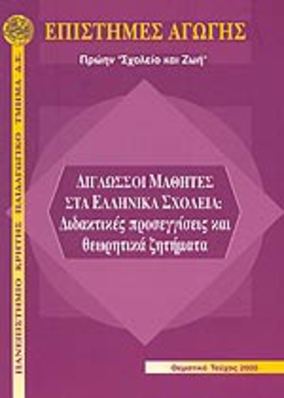Έλεγχος δομικής εγκυρότητας και αξιοπιστίας των ερωτηματολογίου : το παιδί του εκπαιδευτικού στην τάξη του - απόψεις και αντιλήψεις των Ελλήνων δασκάλων
Part of : Επιστήμες Αγωγής ; No.4, 2010, pages 201-217
Issue:
Pages:
201-217
Abstract:
The purpose of the present study was to describe the factor structure and reliability of two questionnaires designed to measure the reasons why the teachers decide to have or not their children in the classroom they teach. Six hundred and thirty two teachers (230 men, 402 women) volunteered to participate in the study. Teachers' age ranged from twenty to sixty years (M = 40.87, SD = 7.19), with a mean of teaching experience of approximately sixteen years (SD = 8.01 ). The study was conducted in two phases. The first phase targeted on item selection, content relevance, and to test the factor structure of the instruments. The aim of the second phase was focused on further examination of the psychometric properties of the instrument. The results of exploratory factor analysis provided adequate support for the instruments. The Questionnaire "Teacher's Child in the Classroom" (n? = 249) consists of ten (10) items, representing two factors (control of child's behavior, interaction between parent and child). The Questionnaire "Teacher's Child not in the Classroom" (n2 = 283) contains fourteen (14) items, unifying in three factors (teacher's negative experience, discrete role between child and teacher, socialization). A confirmatory factor analysis showed an acceptable fit to the data for both questionnaires and the factors were internally consistent. Future research should examine the convergent and discriminant validity, as well as test-retest reliability. The questionnaires appears to be promising psychometric instruments that can be used in research and educational environment.
Subject (LC):
Keywords:
έλεγχος δομικής εγκυρότητας ερωτηματολογίου, το παιδί του εκπαιδευτικού στην τάξη του
Notes:
Περιέχει σχήματα, πίνακες και βιβλιογραφία




